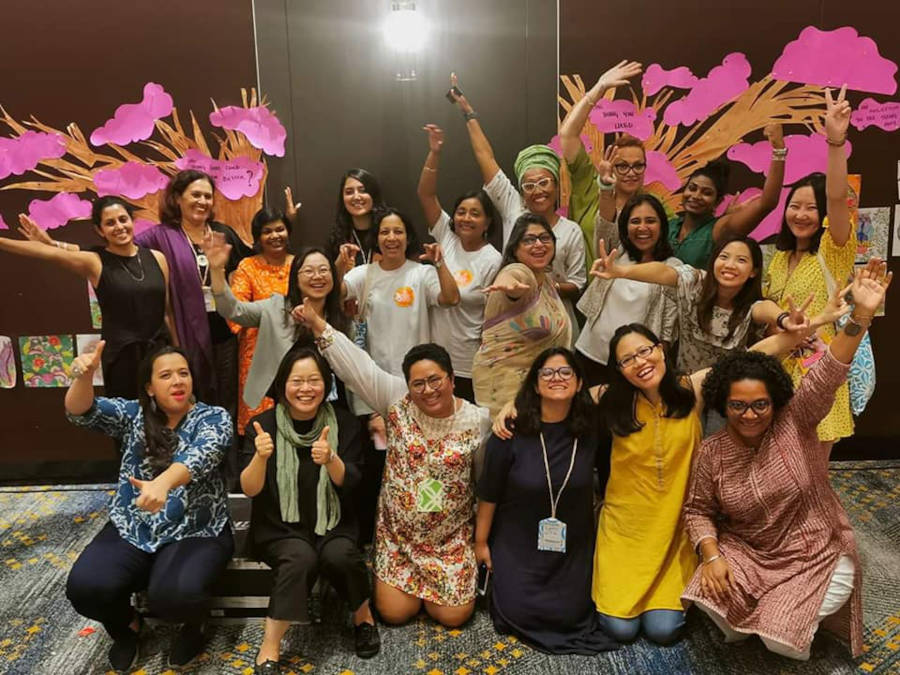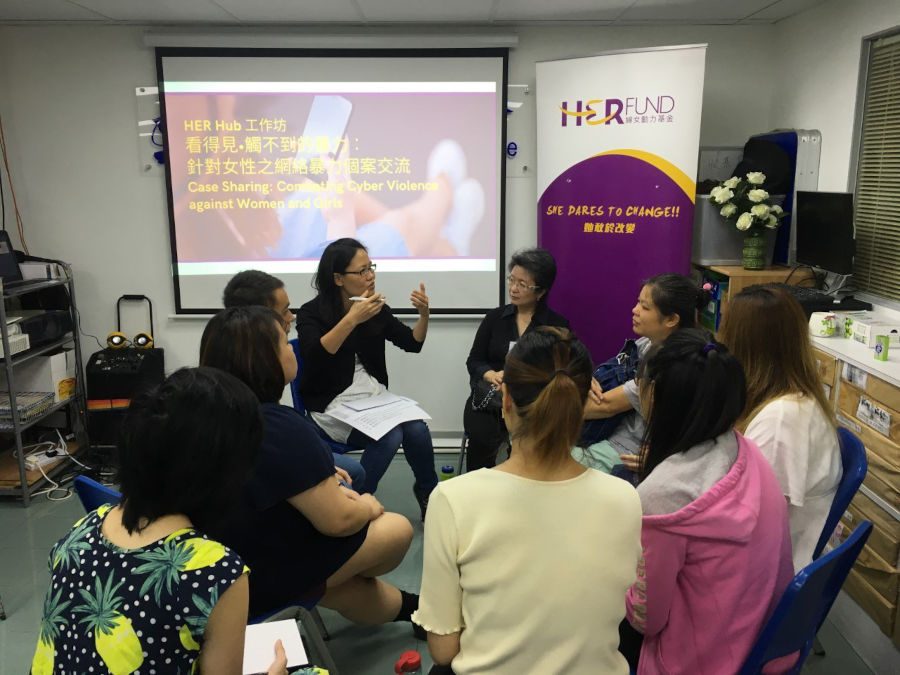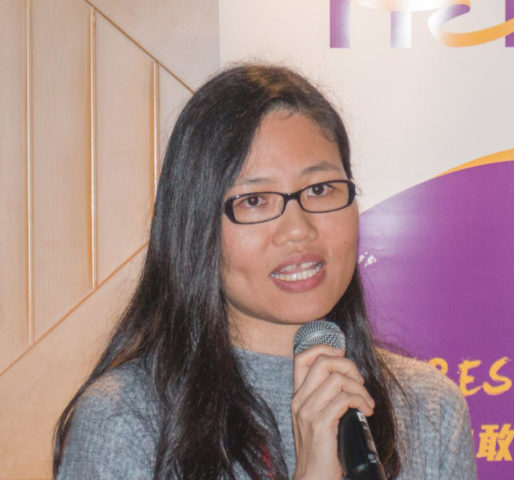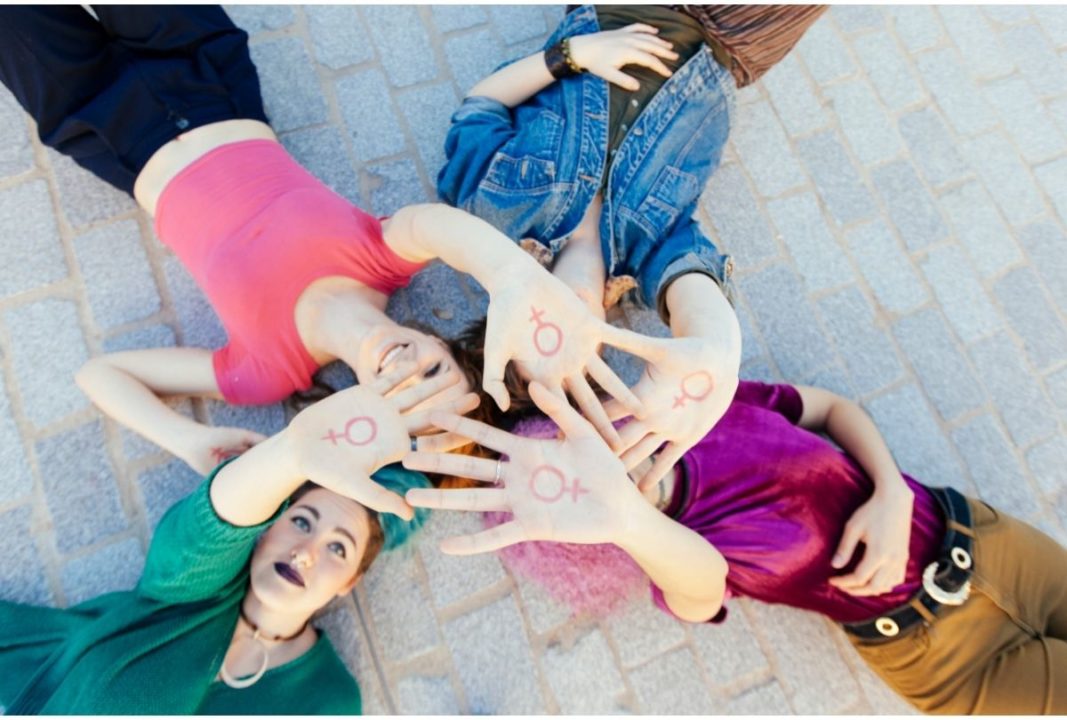Acceptance of the negative role patriarchy has played throughout history, increase in Diversity & Inclusion initiatives, and the idea that women aren’t necessarily physically or intellectually inferior to men is becoming more widespread. But how about practically, in our social circles, workplaces, family conversations? Is gender equality really becoming more of a reality or have we hit a wall?
To dig deeper, we spoke to Judy Kan, Executive Director of HER Fund, an organization that collaborates with and mobilizes women-focused organizations, about Hong Kong’s awareness of gender equality issues and the behaviours we’ve accepted as ‘normal’ that actually sprout from gender stereotypes about women.
What is helpful in the conversation about gender equality?
When thinking about what I could possibly say about gender equality, it felt very difficult not to say something that isn’t uselessly idealistic or obvious. I landed on highlighting the normalized behaviours we see in workplaces and social circles that have their roots in internalized gender biases.
I don’t know why I automatically thought about gender inequalities in the workplace. Maybe it’s because in traditional Chinese culture, it’s uncommon for women to spend time alone with men who aren’t their relatives or spouse, so these behaviours only show up at work. And maybe because social gender structures mirror themselves in office culture. Ask what oppression or microaggressions a woman has encountered at work, and you get an understanding of what she’s experienced in other parts of her life. And maybe I asked about the workplace because it’s easier to begin arguing for reform in the workplace as a starting point.
Of course, not just from men – gender biases such as the ones that women are predisposed to be mothers, gentle, nurturing, better at being mediators than leaders, are still widely accepted by women, too.
What inequalities do you see women experience in the workplace?
Kan answers, “When a breastfeeding mom needs to breastfeed their kid during a Zoom meeting, although people may say ‘That’s fine,’ when you see their facial expression, you would see they don’t feel happy about it. But sometimes you need to feed babies and that’s the right time.”
“During the pandemic, grassroots families have had to select someone to quit their job to take care of the kids, and usually it’s the mother.” According to a Hong Kong Women in Figures study from 2021, 615,600 women were full-time homemakers compared to 38,700 men in 2020. And if both parents work full-time, the mother is often expected to take on caretaking as well, leading to burnout.
“‘Caretaker’ is assumed to be women’s identity, not something they do. This normalization shows up in our language about other minorities, too. “We always call domestic workers ‘domestic helpers’, making it seem like they’re not a worker, they don’t have worker’s rights. Similarly, a housewife’s work isn’t seen as work. They aren’t treated like they should have some return or have their well-beings taken care of,” Kan explains.
An HKU study found that talented women leave corporations partly because of a lack of promotion opportunities. Winky Law, Development Officer of the organization, chimes in: “In a workplace setting, how do you reinforce or encourage the employer to have policies that are inclusive? How do you create a culture [where it’s normal] to treat individuals with different identities equally?”
Gender disparity shows up not just in the well-documented pay gap, but in business investment too. A study of start-up businesses showed that women business owners receive an average of 1 million USD less than men in early stage funding. Despite this, the same study found that start-ups founded or co-founded by women generated more revenue in a five-year period.
Often, gender stereotypes that suppress minority voices are normalized, so that even the individual is blind to them: “Many people face this kind of discrimination, but don’t recognize it because we think, ‘It’s been like that for a long time. It’s my fault to think or react like this.’”
What does a society with gender equality look like?
“We always hope that all people can live with dignity and enjoy basic rights without discrimination and violence. But what does that mean?” Kan laughs. “I would hope first that all people, even minorities, would have their rights taken care of.”
Using domestic workers experiencing violence as an example, she says: “Nepalese workers often don’t speak either English or Cantonese. So when they come into a violent situation, they have difficulty finding someone to help outside of their community. That’s why I say no matter how small the minority, their rights are still super important. Minority issues should be seen heard, and dealt with.”

With an understanding of intersectionality, a lens to center the voices of those who experience overlapping forms of oppression, there can be a deeper understanding of the root causes of inequality in society.
Kan uses the example of an Asian queer woman experiencing domestic violence. “If you see the victim only as a queer woman, you’re missing part of the root problem.” Rather, the woman’s race is one factor behind the violence that intersects upon the factor of her sexuality. “If we know her Asian background, then we also need to understand culture and understand the biases of that in the social context.” Seeing the victim in a more holistic way subsequently requires more analysis to extract the root cause behind the discrimination. This results in a better understanding of why the vulnerable person is vulnerable.
How to work towards gender equality on a personal level

“Start with listening to marginalized people’s stories and giving your encouragement.” Kan emphasizes the importance of being an empathetic companion instead of a saviour: “Instead of saying, ‘I have more knowledge and resources and you should do this and do that,’ listen to understand their challenges. Then you can know what can be done together. Sometimes when you say ‘help’, that causes a divide which makes the marginalized community feel not equal.“
“Although Hong Kong is an international financial center, it’s still very behind” in policies that ensure the protection of rights and equal access to the ladder, especially in places like the US and Europe. The emphasis is on how the city looks as a financial hub on the surface, with gender-related issues under the surface.
Yumi Wong, HER Fund’s programme assistant, talks about the relationship between perception of women’s emotionality and how it affects their workplace experience. “Unconscious microaggressions create a non-friendly environment that hinder a woman or LGBTQ person’s access to social or cultural resources. The biases are also internalized and hinder us from talking about our thoughts or expressing our emotions in the workplace. Women think they need to perform their professionality in order to get a promotion.”
“These are the kind of difficulties that women face in every day life that may also cause mental distress. It is our effort to recognize the different difficulties faced by vulnerable communities so we can know how to provide support and treat the people around us with respect and dignity.”
#BreakTheBias: Lived experiences of gender bias
To help HER Fund continue supporting small women- and girl-centred organizations in Hong Kong, consider donating to them below.

Judy Kan joined HER Fund as a Programme Officer since 2007, and has led as Executive Director since 2018. As a registered Social Worker, she has committed herself to work for people facing injustice, working previously as a community organizer for women and young people.
HER Fund is part of Prospera, an international network of women’s funds that provides financial and educational resources to grassroots organizations related to women, girls, and other marginalized populations.
Disclaimer: The opinions expressed in this publication are those of the authors and do not necessarily represent the views of The HK HUB.
Header image credits: beaveraphotos via Canva




